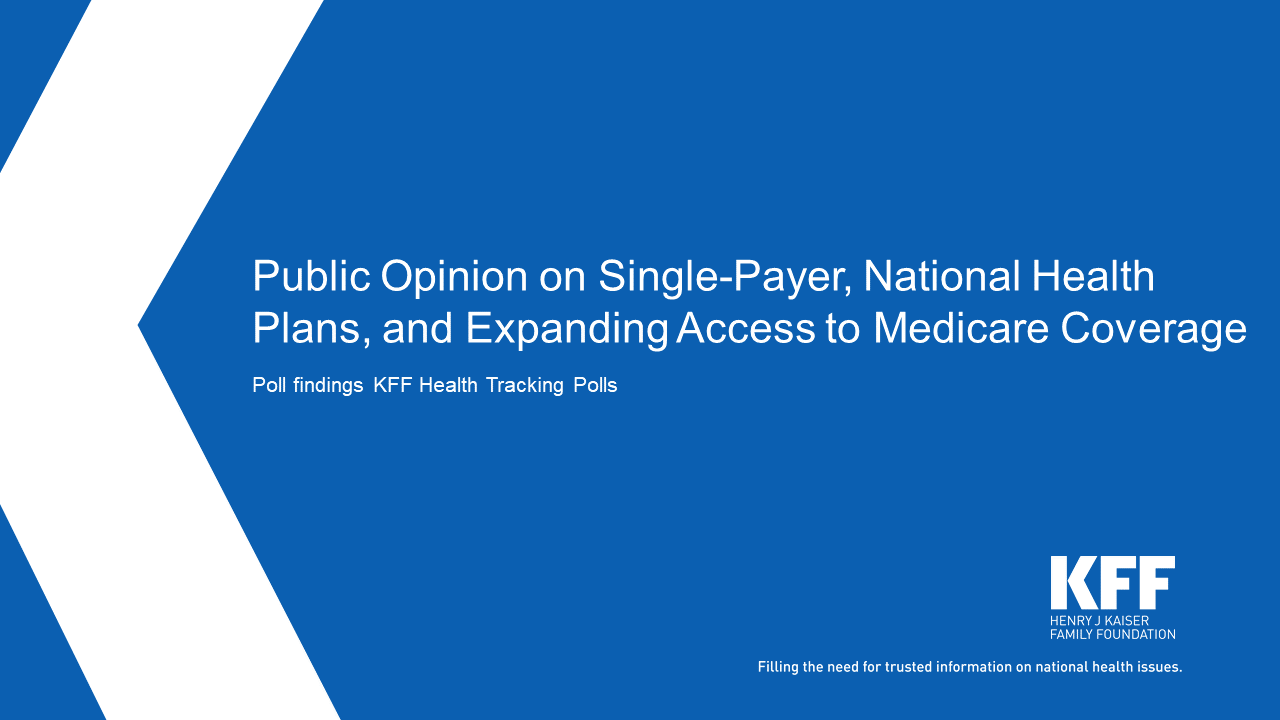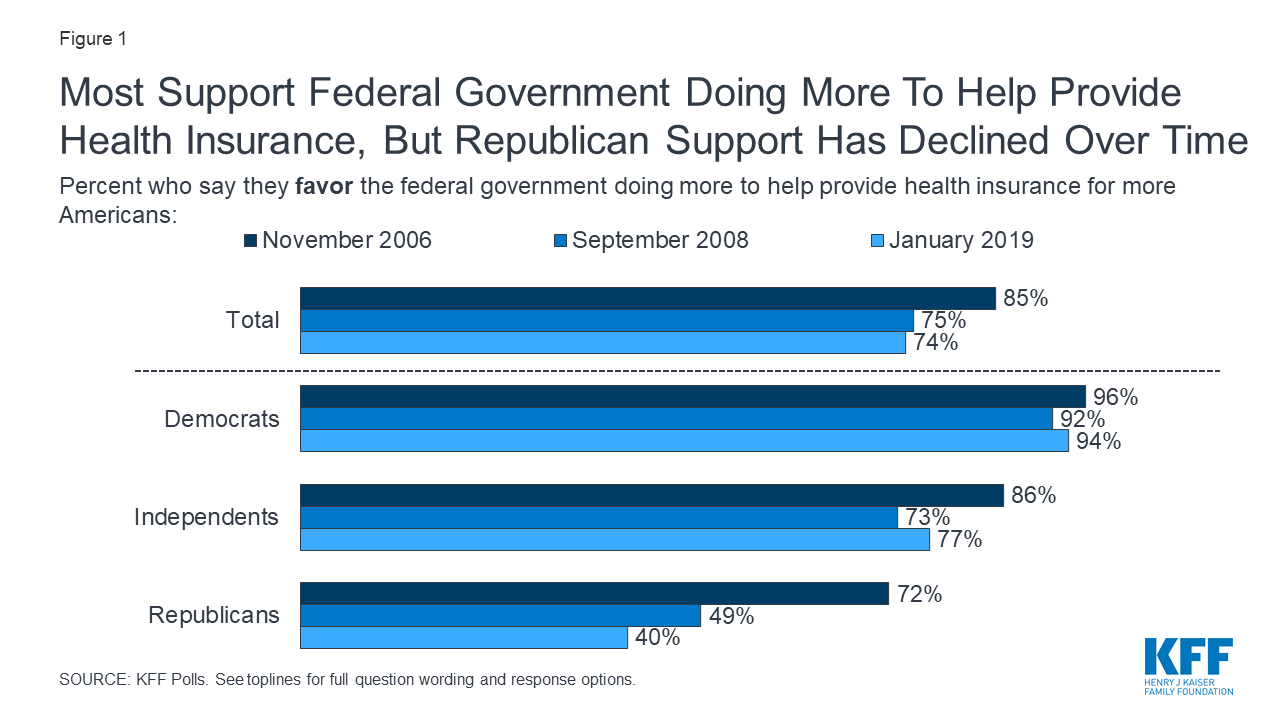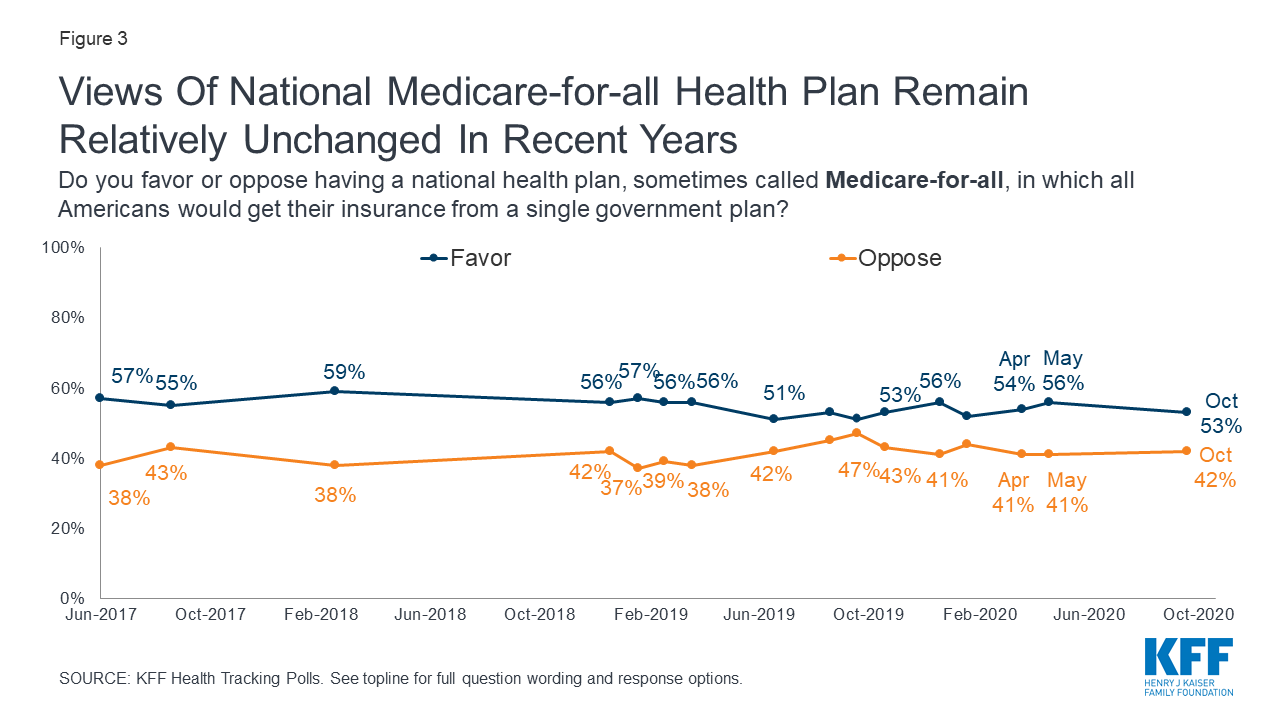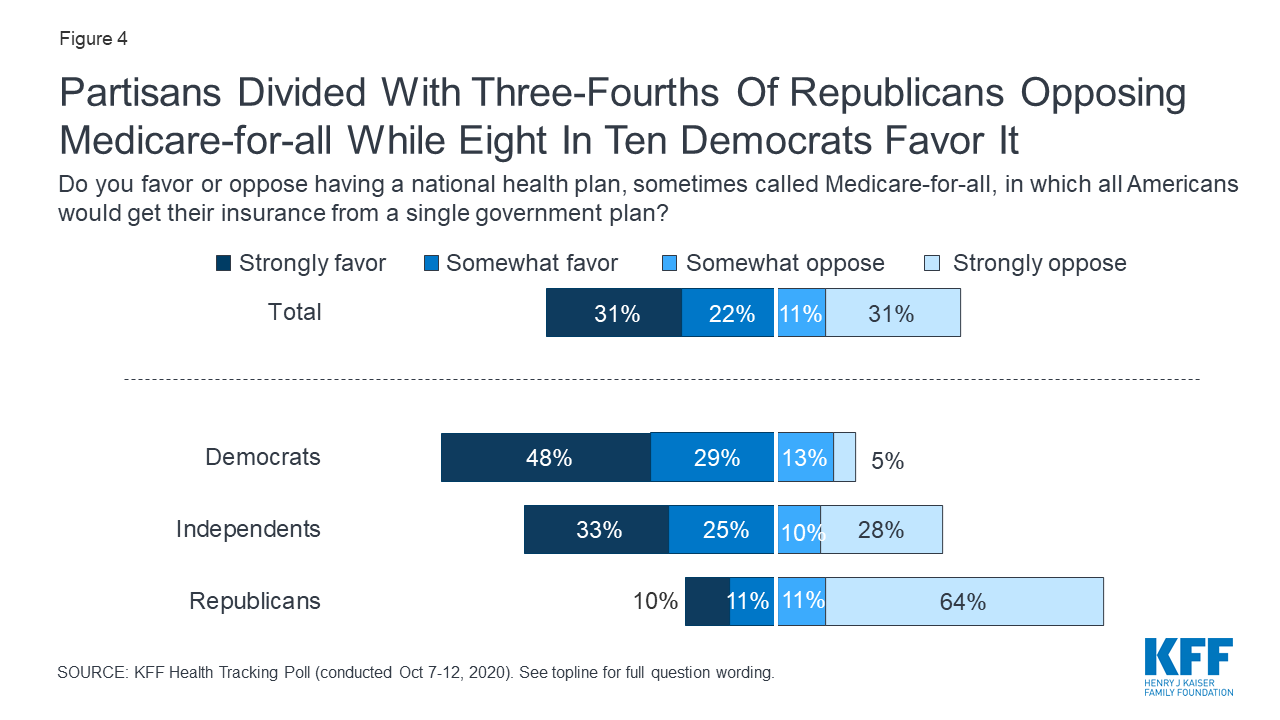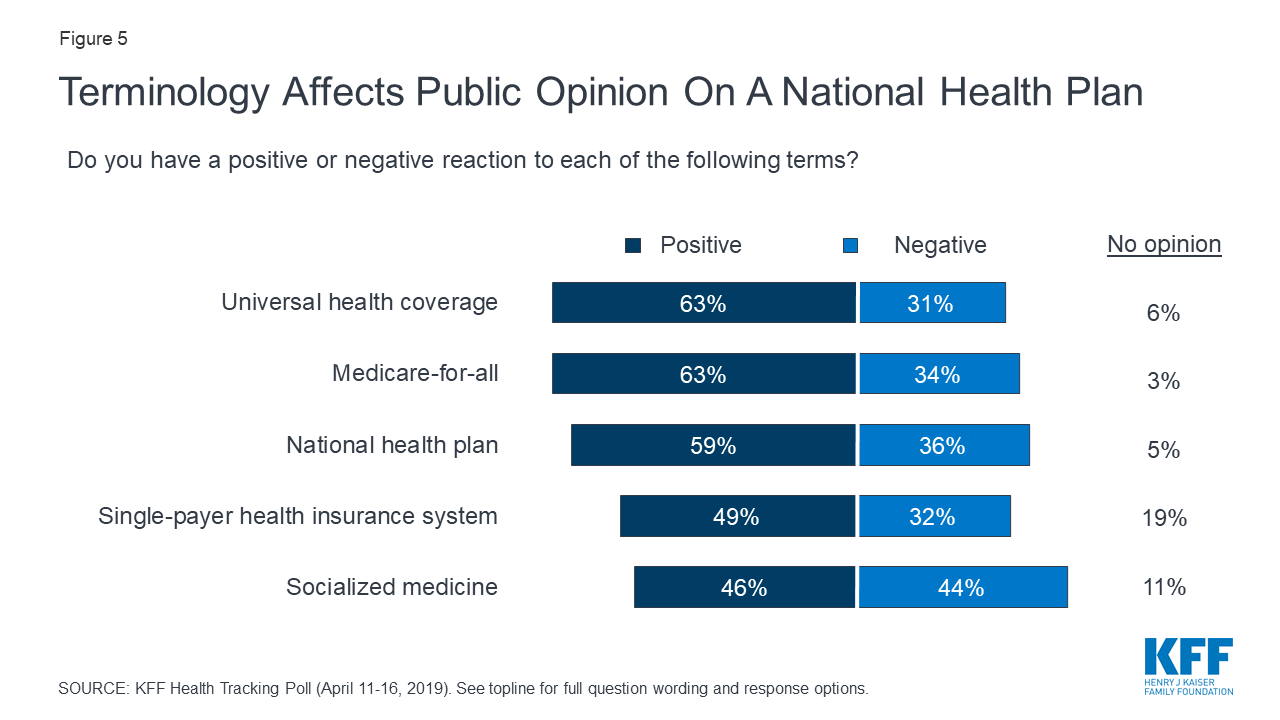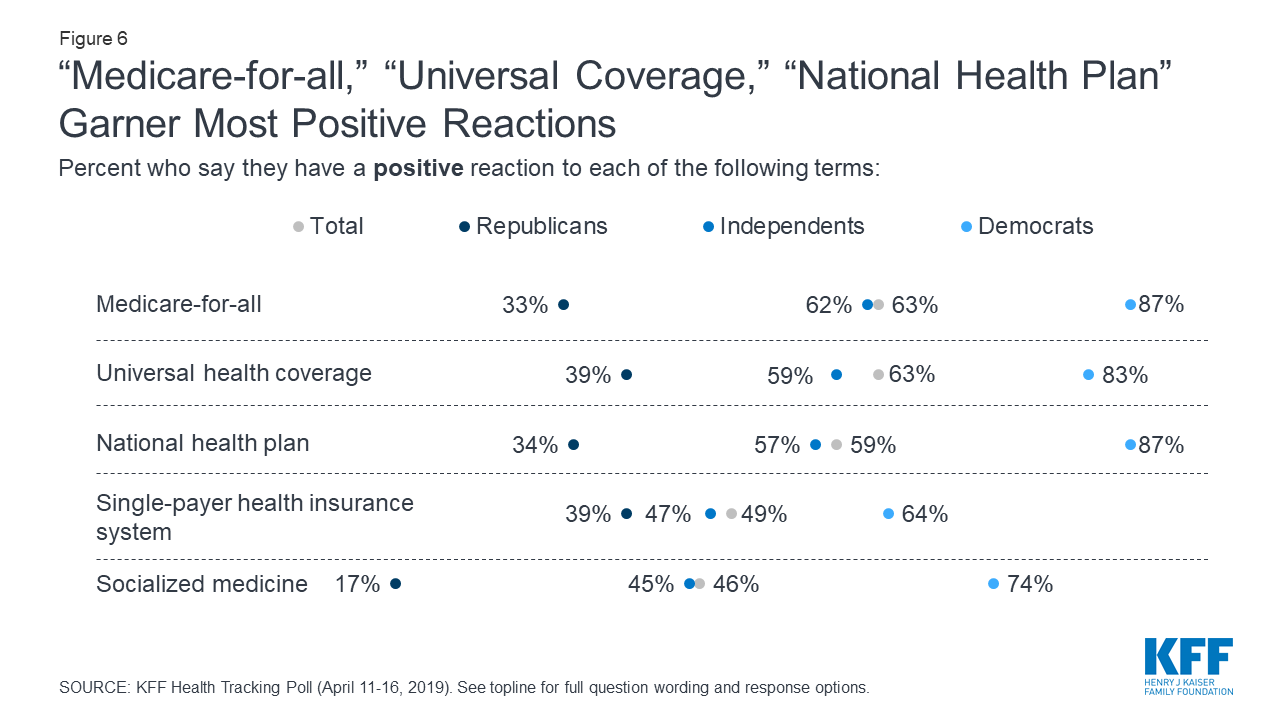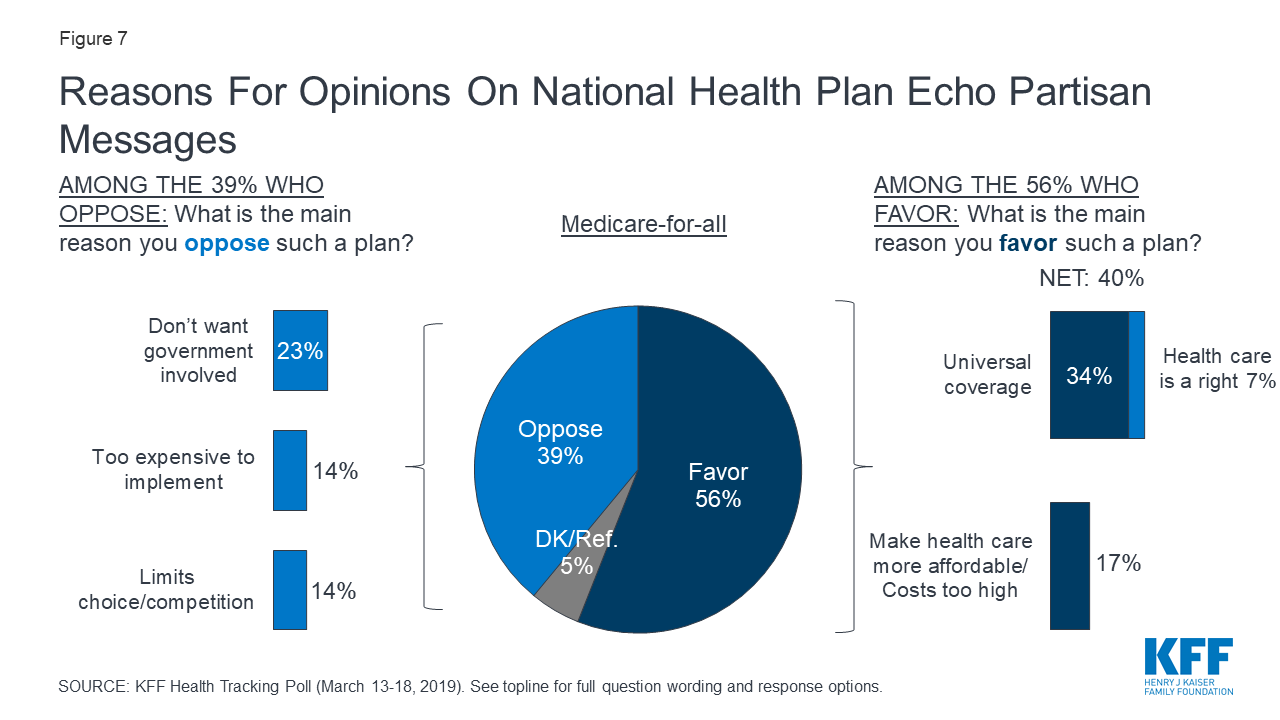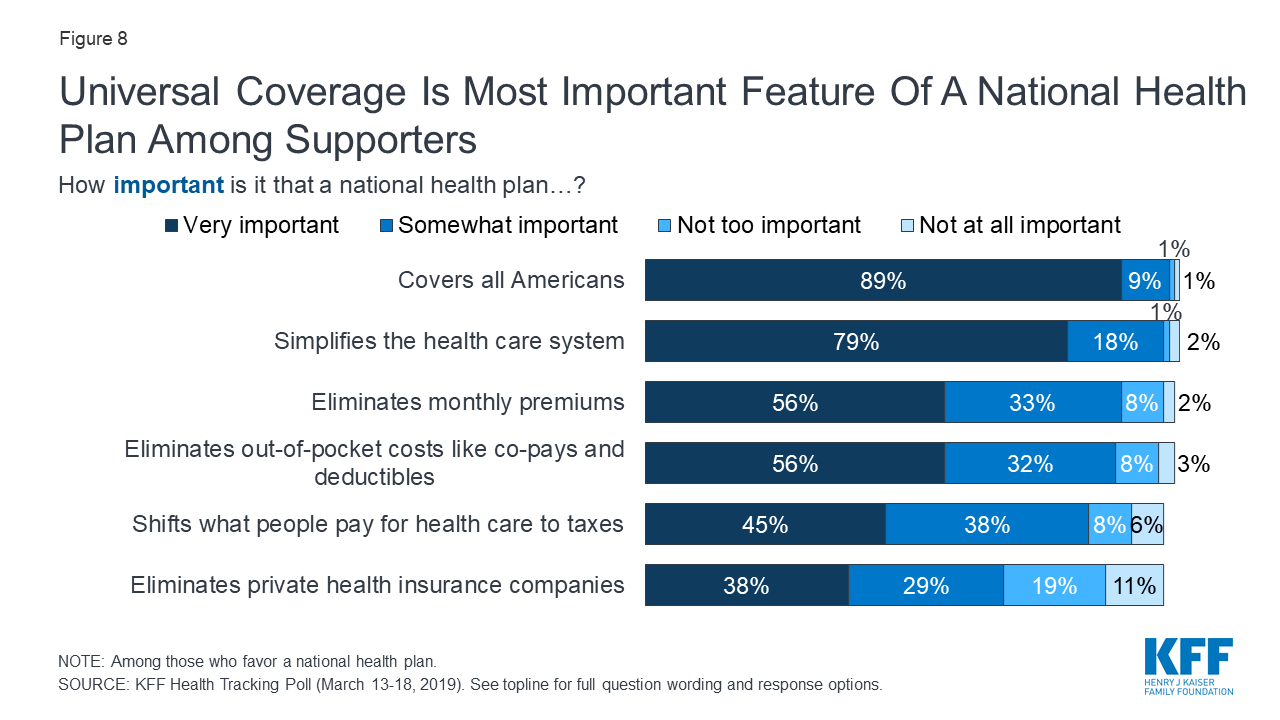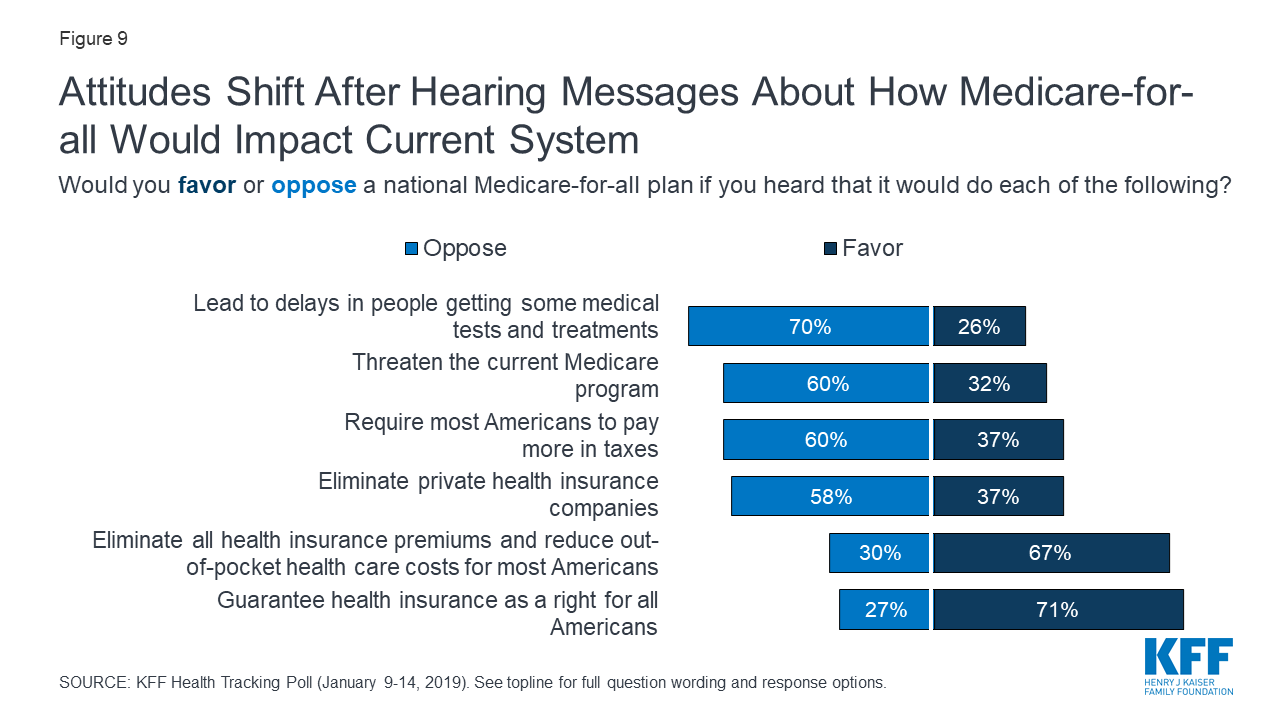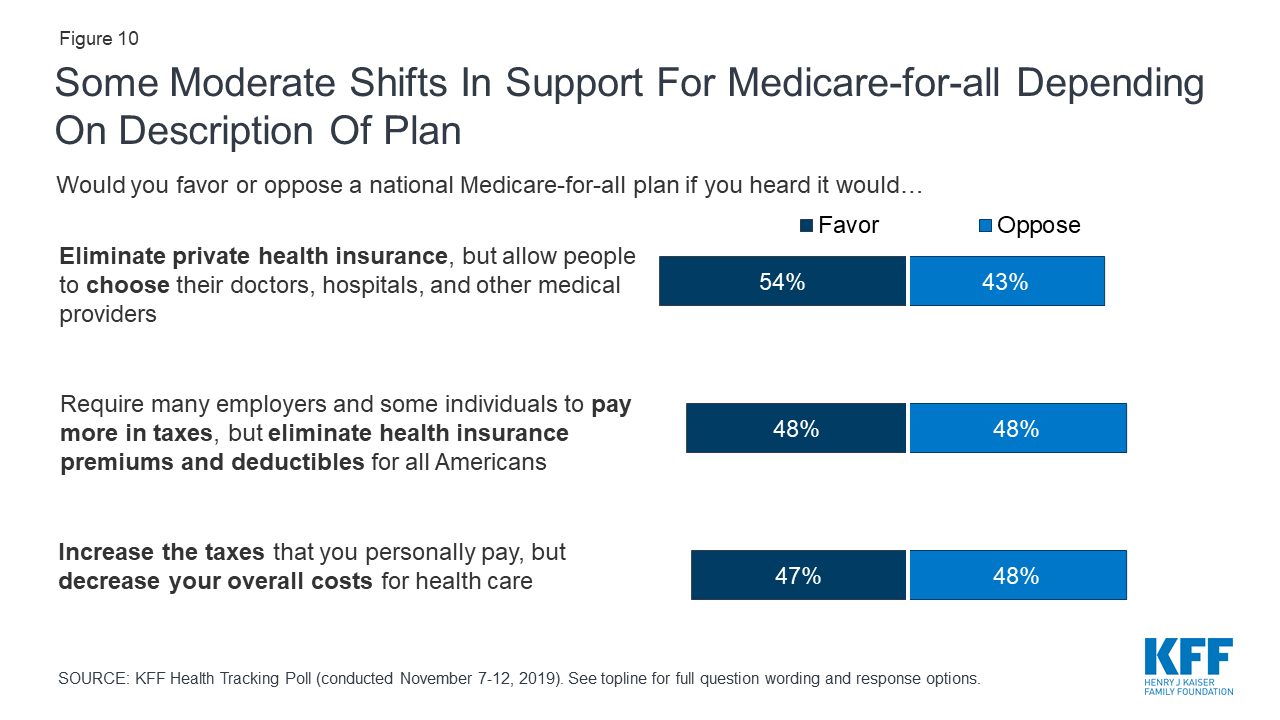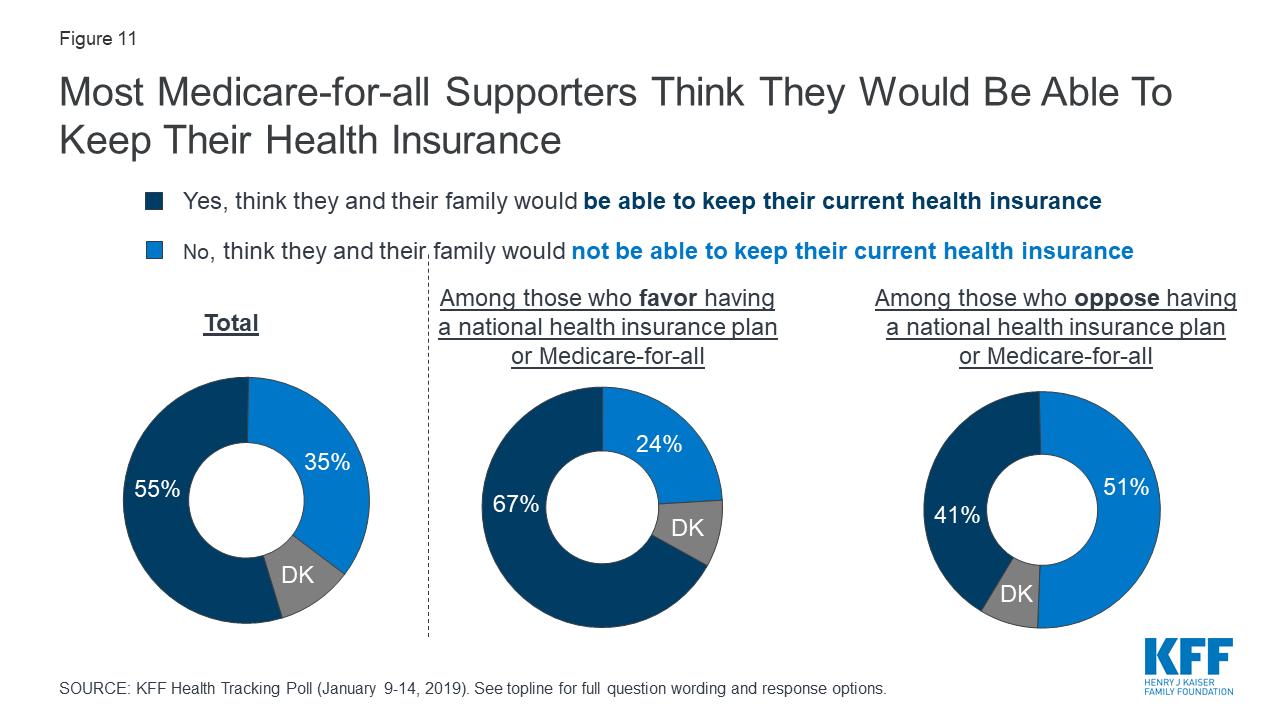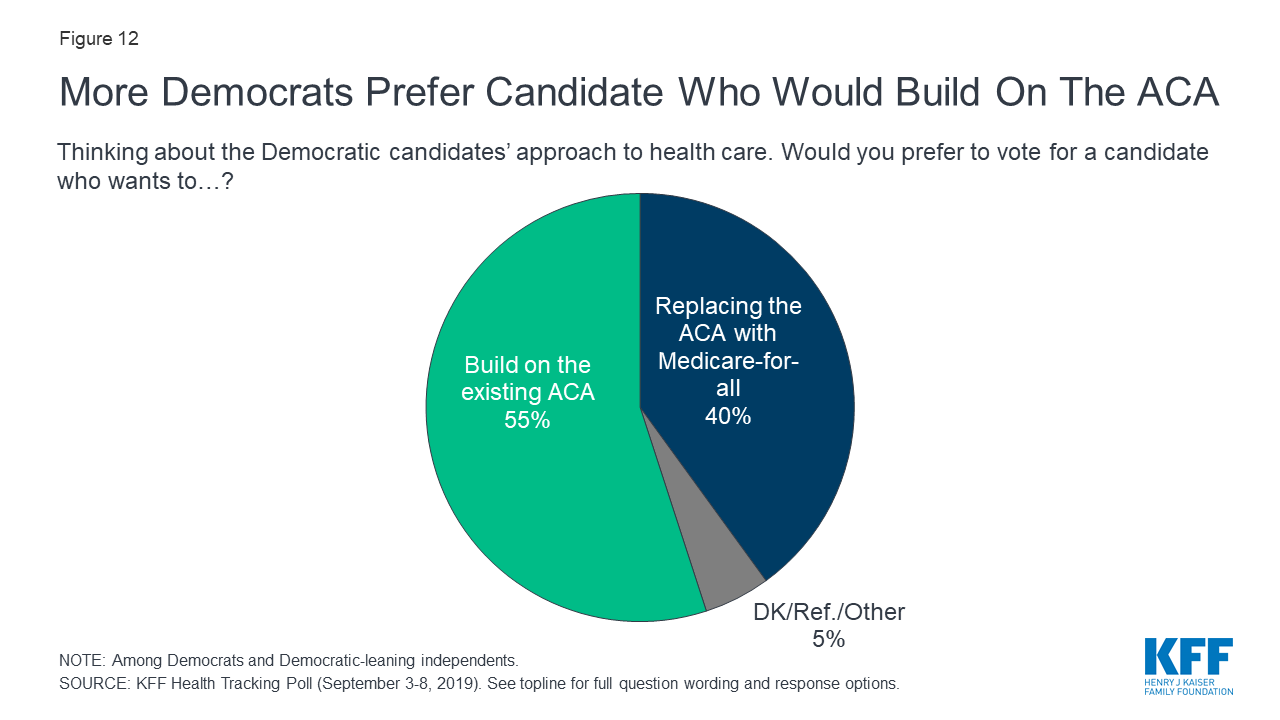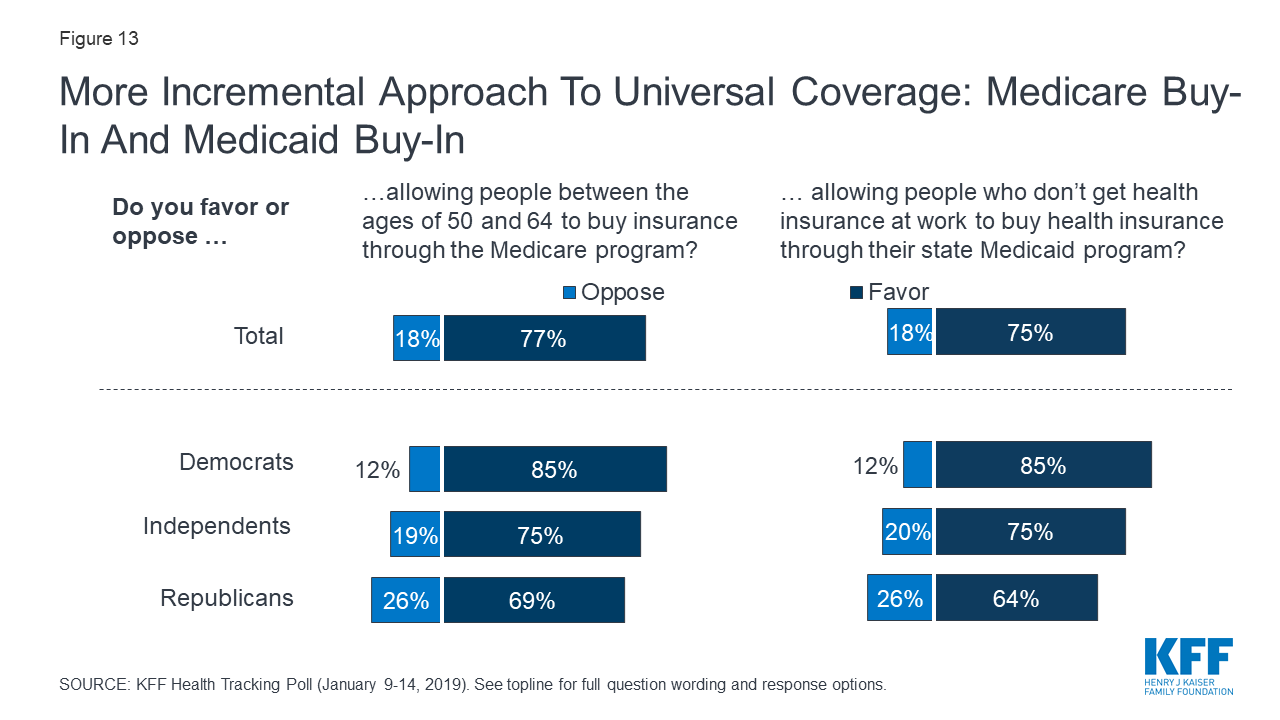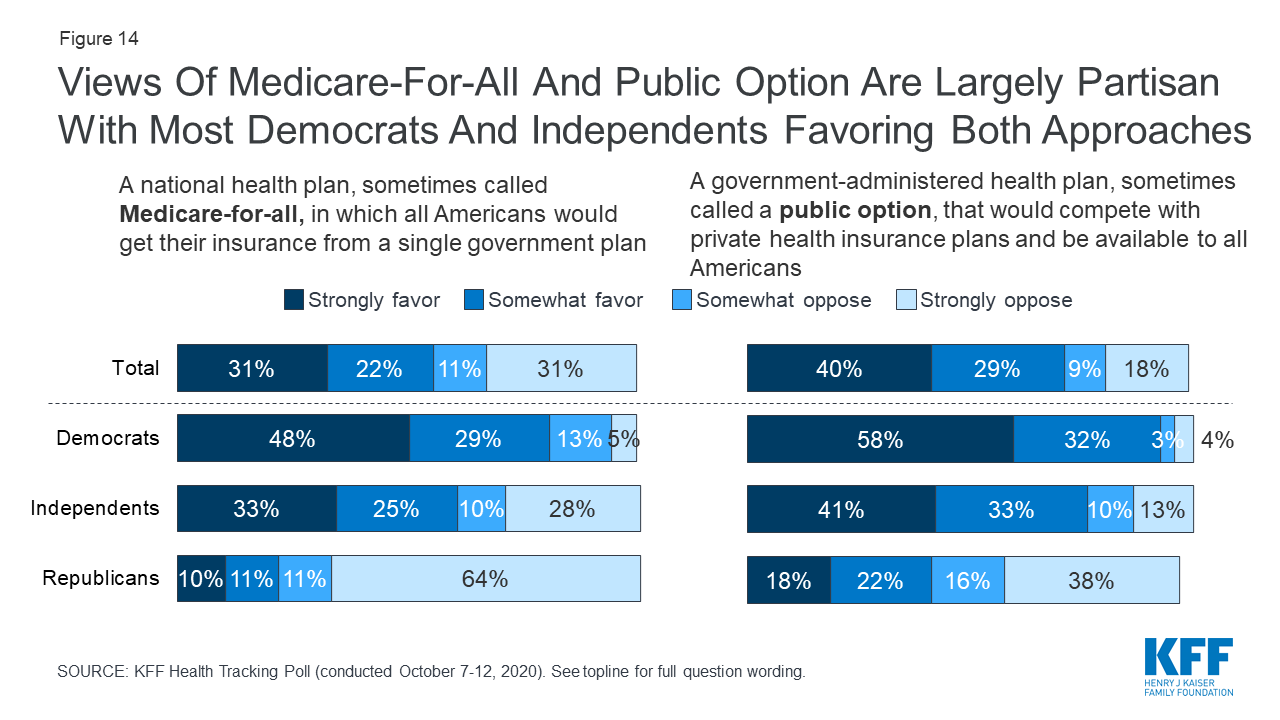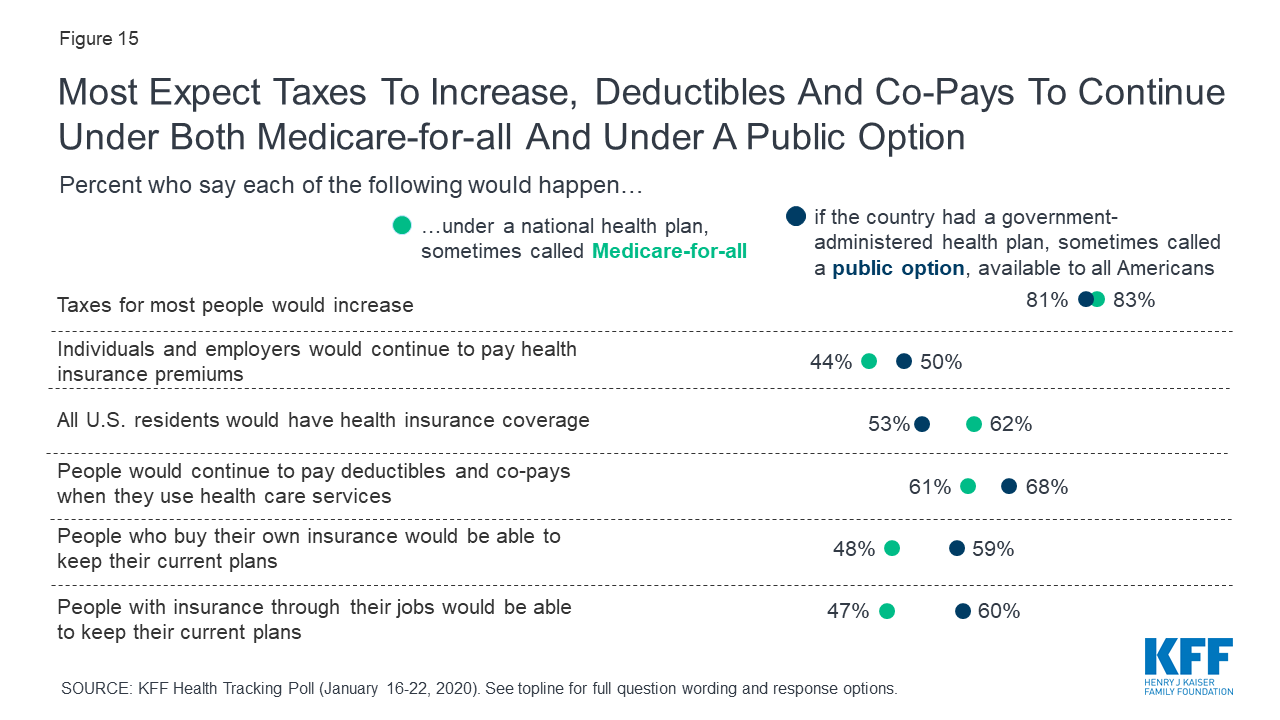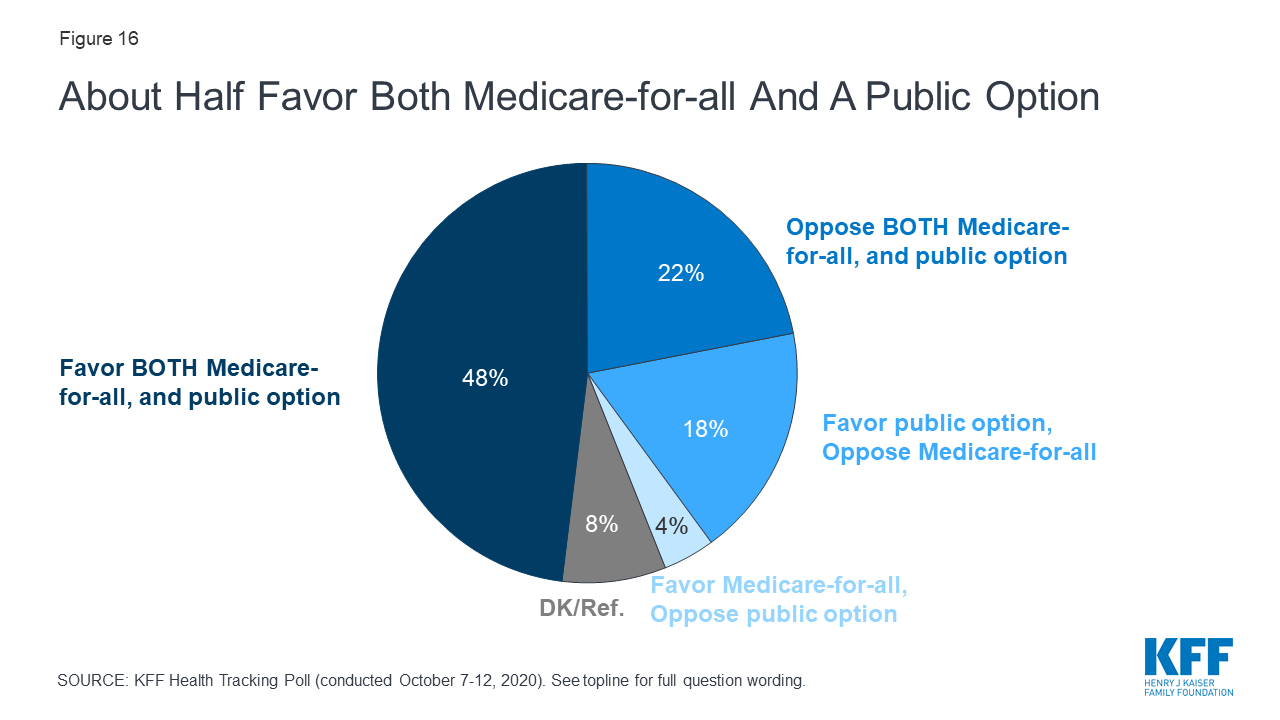Public Opinion on Single-Payer, National Health Plans, and Expanding Access to Medicare Coverage
For many years, Kaiser Family Foundation has been tracking public opinion on the idea of a national health plan (including language referring to Medicare-for-all since 2017). Historically, our polls have shown support for the federal government doing more to help provide health insurance for more Americans, though support among Republicans has decreased over time (Figure 1). But this never translated into majority support for a national health plan in which all Americans would get their insurance from a single government plan until 2016 (Figure 2). A hallmark of Senator Sanders’ primary campaign for President in 2016 was a national “Medicare-for-all” plan and since then, a slight majority of Americans say they favor such a plan (Figure 3). Overall, large shares of Democrats and independents favor a national Medicare-for-all plan while most Republicans oppose (Figure 4). Yet, how politicians discuss different proposals does affect public support (Figure 5 and Figure 6). In addition, when asked why they support or oppose a national health plan, the public echoes the dominant messages in the current political climate (Figure 7). A common theme among supporters, regardless of how we ask the question, is the desire for universal coverage (Figure 8).
As Medicare-for-all becomes a staple in national conversations around health care and people become aware of the details of any plan or hear arguments on either side, it is unclear how attitudes towards such a proposal may shift. KFF polling finds public support for Medicare-for-all shifts significantly when people hear arguments about potential tax increases or delays in medical tests and treatment (Figure 9). KFF polling found that when such a plan is described in terms of the trade-offs (higher taxes but lower out-of-pocket costs), the public is almost equally split in their support (Figure 10). KFF polling also shows many people falsely assume they would be able to keep their current health insurance under a single-payer plan, suggesting another potential area for decreased support especially since most supporters (67 percent) of such a proposal think they would be able to keep their current health insurance coverage (Figure 11).
KFF polling finds more Democrats and Democratic-leaning independents would prefer voting for a candidate who wants to build on the ACA in order to expand coverage and reduce costs rather than replace the ACA with a national Medicare-for-all plan (Figure 12). Additionally, KFF polling has found broader public support for more incremental changes to expand the public health insurance program in this country including proposals that expand the role of public programs like Medicare and Medicaid (Figure 13). And while partisans are divided on a Medicare-for-all national health plan, there is robust support among Democrats, and even support among four in ten Republicans, for a government-run health plan, sometimes called a public option (Figure 14). Notably, the public does not perceive major differences in how a public option or a Medicare-for-all plan would impact taxes and personal health care costs. However, there are some differences in perceptions of how the proposals would impact those with private health insurance coverage (Figure 15). KFF polling in October 2020 finds about half of Americans support both a Medicare-for-all plan and a public option (Figure 16). So while the general idea of a national health plan (whether accomplished through an expansion of Medicare or some other way) may enjoy fairly broad support in the abstract, it remains unclear how this issue will play out in the 2020 election and beyond.
